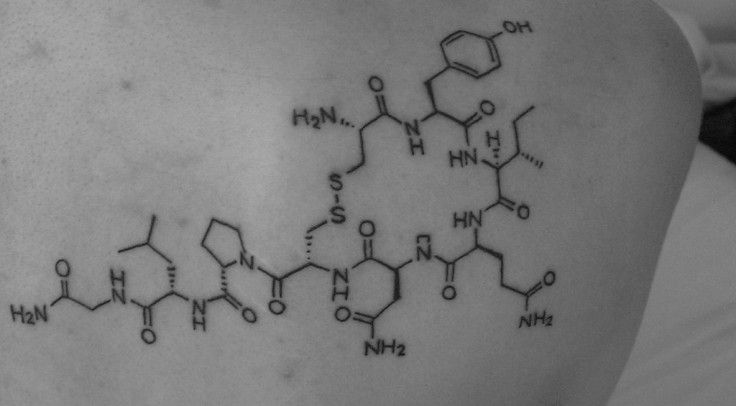Oxytocin, 'The Love Hormone,' Could Be Up Next For Treating Psychiatric Disorders

Evidence has shown that oxytocin is key to how the brain processes love, earning it the nickname “The Love Hormone,” but what other roles does oxytocin play when it comes to platonic relationships? Researchers from the Yerkes National Primate Research Center at Emory University have finished a study revealing that the release of oxytocin in the brain could lead to potential treatments for enhancing social function in people affected by a psychiatric disorder.
"Our latest discovery opens a new avenue of research to harness the power of the brain's oxytocin system to enhance the ability to process social information that could profoundly affect treatment of social disorders, particularly when combined with behavioral therapies used to treat children on the autism spectrum," Dr. Larry Young, division chief of Behavioral Neuroscience and Psychiatric Disorders at the Yerkes National Primate Research Center, said in a statement.
Young, who along with co-author Catherine Barrett recently published a “Perspective” titled “Can Oxytocin Treat Autism” in Science magazine, and his colleagues created an index of prosocial effects using pair bonding in monogamous prairie voles, or a rodent similar to a mouse. A monogamous bond between voles is usually forged after the release of oxytocin in the brain during mating. The bond between mother and child is also created via oxytocin. Oxytocin is currently a lead drug candidate for treating social deficits in autistic patients.
By administering a drug that activates melanocortin receptors and stimulates the release of oxytocin, researchers were able to pair bond male and female voles without mating. The impact this drug had on social relationships lasted well after it wore off. The same drug also activated the cell releasing oxytocin directly into the brain’s reward centers that are responsible for generating social bonds. The Yerkes research team are confident this drug can influence how people with psychiatric disorders interpret social information.
"Imagine a drug that could induce the social attention and motivation a mother feels when nursing her infant or the bond between new lovers," Young added. "This is exactly what we have shown in our latest oxytocin-related research and the chemical's viability to be a therapeutic target for enhancing social function in psychiatric disorders, including autism spectrum disorders and schizophrenia."
A recent video featuring Georgetown University psychologist Abigail Marsh explores the impact oxytocin has on falling in love. When we form a romantic bond with someone, our brain’s release of oxytocin triggers increased levels of dopamine, a neurotransmitter that controls the brain’s reward and pleasure centers. So as romantic gestures, such as kissing, hugging, or cuddling, trigger a flow of oxytocin and dopamine, our brains translate this action as “rewarding.”
Source: Modi M, Young L, et al. Neuropsychopharmacology. 2015.



























